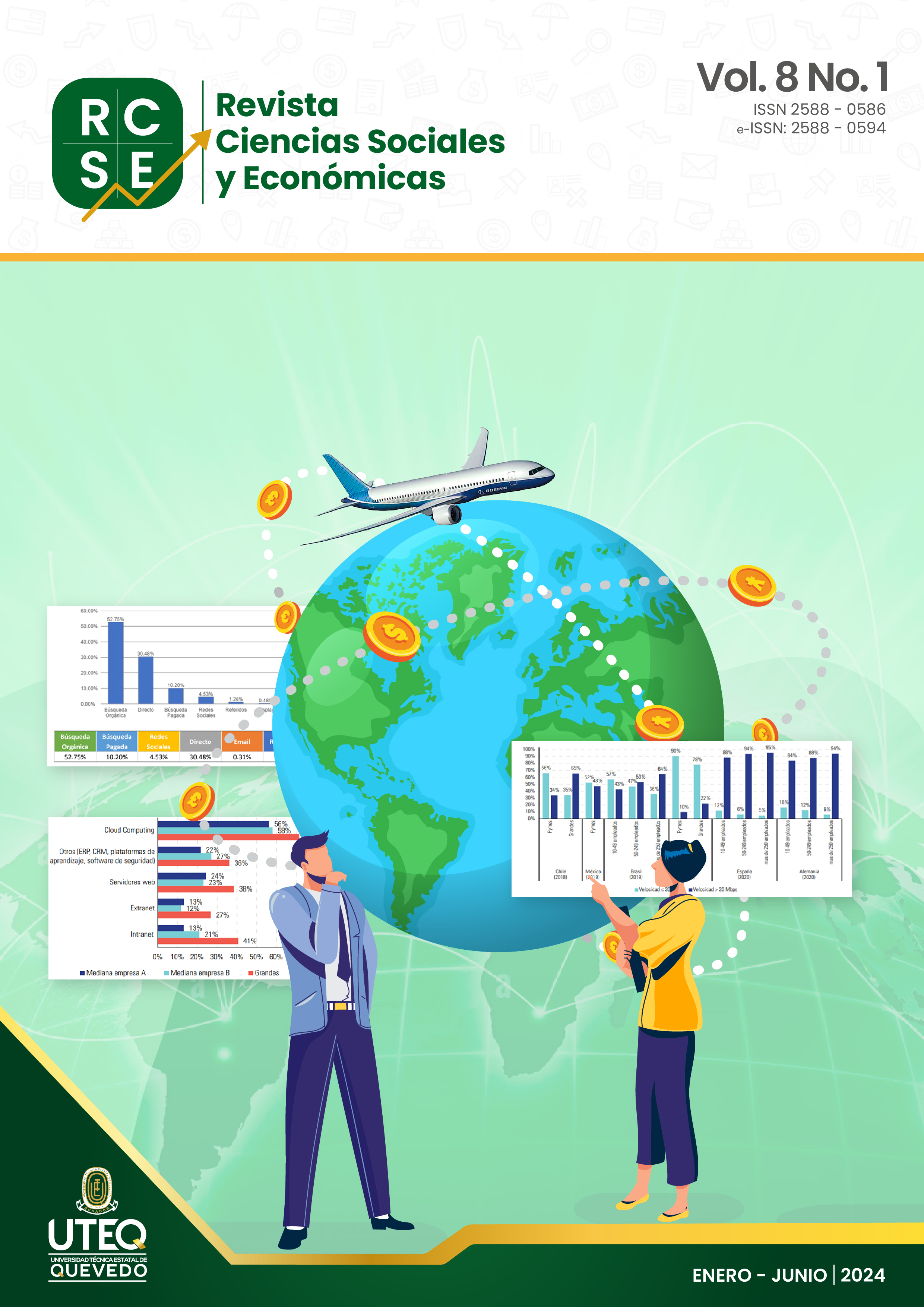Intercultural experiences and their influence on teaching English as a foreign language
DOI:
https://doi.org/10.18779/csye.v8i1.739Keywords:
teaching, learning, English, interculturality, experienceAbstract
This research presents the intercultural experiences of teachers at the State Technical University of Quevedo and their influence on the Teaching of English as a Foreign Language. The general objective of this study is to identify how teachers’ intercultural experiences contribute to the teaching of English, determining and describing intercultural experiences such as academic exchanges, trips, and interactions with foreign cultures to know how they contribute to the development of intercultural competence in the classroom. Descriptive research was developed, of a mixed nature, with qualitative and quantitative instruments such as interviews and surveys. The data analysis was thematic and content. It was obtained that some teachers consider that the intercultural experience they have allows them to carry out activities where students can demonstrate and apply the values of foreign culture. Regarding the intercultural competence developed in the students, most participants emphasized leading students to read and review intercultural experiences, either through texts or through various materials, resources and strategies such as videos and interactions. with foreign students through videoconferences. Which allows us to conclude that intercultural experiences positively influence the motivation and commitment of teachers and students, by creating a more stimulating learning environment for students by hearing and learning from their experiences.
Downloads
References
Byram, M. (1997). Teaching and assessing intercultural communicative competence. Multilíngual Matters.
Byram, M., y Feng, A. (2004). Culture and language learning: Teaching, research, and scholarship. Language Teaching, 37(3), 149-168. http://dx.doi.org/10.1017/S0261444804002289
Campos, M., y Umaña, H. (2022). Competencia comunicativa intercultural docente del área de inglés desde el aprendizaje situado en la I.E.D. Escuela Normal Superior Santa Teresita de Quetame [Tesis de maestría, Universidad de La Salle]. Repositorio Institucional - Ciencia Unisalle.
OAS (2008). Constitución De La Republica Del Ecuador. [Archivo PDF]. https://www.oas.org/juridico/PDFs/mesicic5_ecu_ane_cons.pdf
Fernández-Agüero, M., y Chancay-Cedeño, C. (2018). Interculturality in the Language Class – Teachers’ Intercultural Practices in Ecuador. RELC Journal, 50(1), 164–178. https://doi.org/10.1177/0033688218755847
Florez-Montaño, S., Zapata-Garcia, J. A., y Peláez-Henao, O. A. (2022). Interculturality in the english teaching and learning processes. Cultura Educación y Sociedad, 13(2), 163–182. https://doi.org/10.17981/cultedusoc.13.2.2022.09
Krainer A. y Guerra M. (2016). Interculturalidad y educación: desafíos docentes. Flacso Ecuador.
Noreña, D. y Cano, L. (2020). 5. Interculturalidad, enseñanza y aprendizaje del inglés como lengua extranjera. El papel del docente 1. Revista Q , 11(22), 74-84. https://repository.upb.edu.co/handle/20.500.11912/8107
Robin, R. (2000). La culture, les cultures, ma culture, les pièges du culturalisme.
Francophonies d’Amérique, (10), 7–21. https://doi.org/10.7202/1005077ar
Rodas, F. (2023). Concepciones sobre la Competencia Comunicativa Intercultural en la formación de docentes de inglés como lengua extranjera: un estudio de caso en la Carrera de Lengua y Literatura Inglesa de la Universidad de Cuenca [Tesis de doctorado, Universidad Nacional de La Plata]. Repositorio Institucional -FaHCEUNLP.
Rodas-Pacheco, F. y Rodas-Brosam, E. (2021). Lenguaje, aprendizaje de lenguas extranjeras, inglés e interculturalidad: una perspectiva ecuatoriana. INNOVA Research Journal, 6(3), 1-16. https://doi.org/10.33890/innova.v6.n3.2021.1726
Rubio, M. (2009). El desarrollo de la competencia comunicativa intercultural en la formación inicial docente. Estudios Pedagógicos (Valdivia), 35(1). https://doi.org/10.4067/s0718-07052009000100017
Sanhueza, S., Paukner, F., San Martín, V., Friz, M. (2012). Dimensiones de la competencia comunicativa intercultural (CCI) y sus implicaciones para la práctica educativa. Folios, 36, 131-151. http://www.scielo.org.co/pdf/folios/n36/n36a08.pdf
Soriano-Ayala, E. (2007). Educación para la convivencia intercultural. Editorial La Muralla, S.A.
UNESCO (2020). Manual para el desarrollo de competencias interculturales: círculos de narraciones. UNESCO.
Velandia Suárez, H., y Fajardo Pereira, H. J. (2014). Propuesta de mejoramiento del plan de estudios en el área de inglés de la educación media orientado al desarrollo de las competencias interculturales. [Tesis de grado, Universidad Militar Nueva Granada]. Repositorio Institucional – Dspace
Published
How to Cite
Issue
Section
License
Copyright (c) 2024 Jairo Patricio Galarza Pucha, María Lorena Estupiñán Lince, Pamela Victoria Guevara Torres

This work is licensed under a Creative Commons Attribution-NonCommercial-ShareAlike 4.0 International License.
Licensing Agreement
This journal provides free access to its content through its website following the principle that making research available free of charge to the public supports a larger exchange of global knowledge.
Web content of the journal is distributed under a Attribution-NonCommercial-ShareAlike 4.0 International.
Authors may adopt other non-exclusive license agreements for the distribution of the version of the published work, provided that the initial publication in this journal is indicated. Authors are allowed and recommended to disseminate their work through the internet before and during the submission process, which can produce interesting exchanges and increase citations of the published work.






